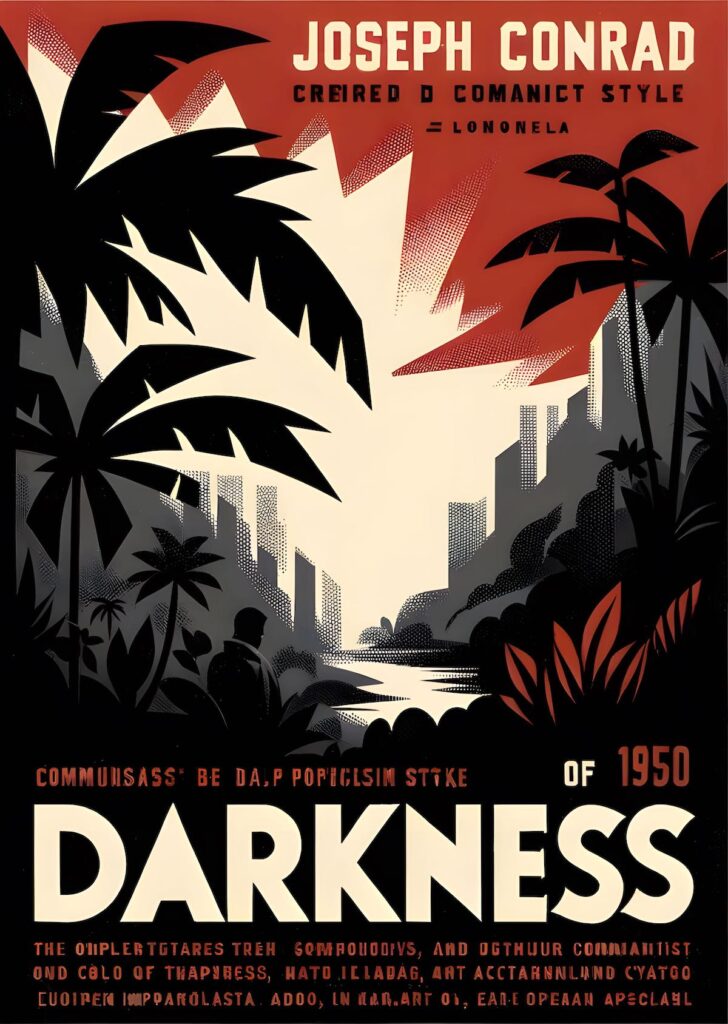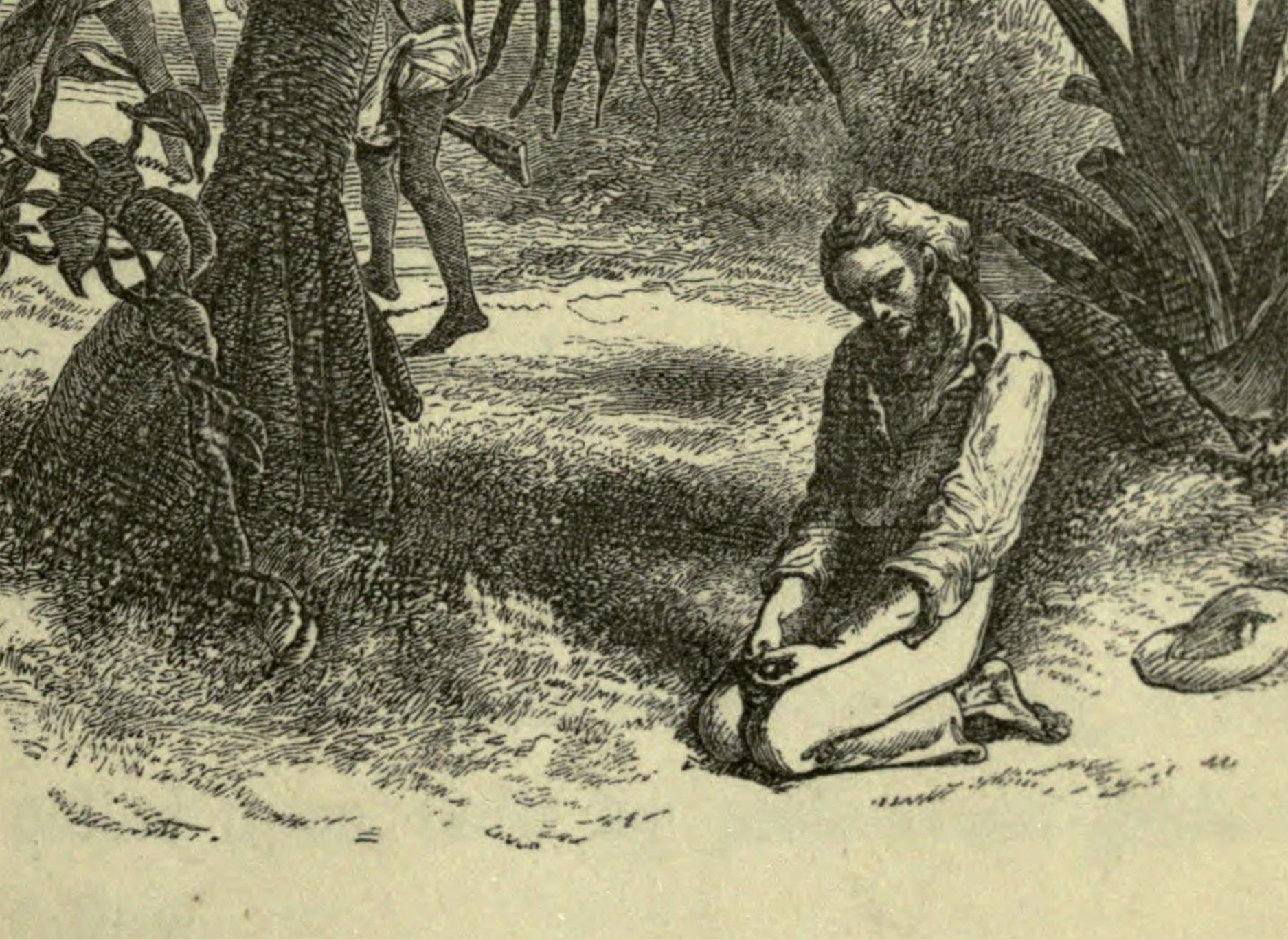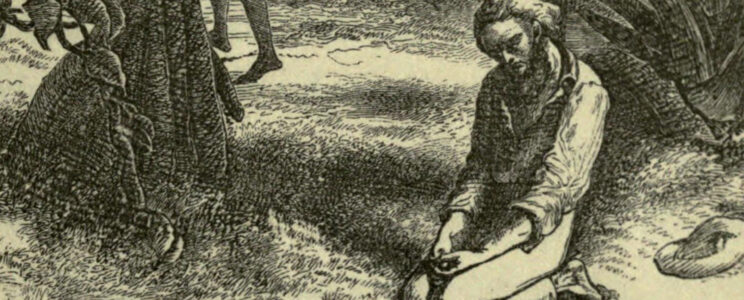In the realm of literary masterpieces, Joseph Conrad’s “Heart of Darkness” stands as a beacon of enigmatic storytelling, unraveling the depths of human nature amidst the backdrop of colonial Africa. Explore the haunting journey into the heart of the Congo, where darkness lurks not only in the wilderness but also within the souls of men.
Introduction: Unraveling the Enigma of Joseph Conrad
Joseph Conrad, a master of prose, intricately weaves narratives that delve into the complexities of the human psyche. Born Józef Teodor Konrad Korzeniowski in 1857 in what is now Ukraine, Conrad’s own experiences as a sailor infused his works with a profound understanding of the human condition. His writing style, marked by vivid imagery and psychological depth, continues to captivate readers worldwide.
Plot: Navigating the Abyss of the Congo
Set against the backdrop of British imperialism, “Heart of Darkness” follows Charles Marlow, a seasoned seaman, as he embarks on a perilous journey up the Congo River in search of the elusive ivory trader, Kurtz. Marlow’s odyssey into the heart of Africa becomes a metaphorical descent into the darkness of human depravity, as he confronts the horrors of colonial exploitation and the moral decay of civilization.
Key Characters: Portraits of Moral Ambiguity
Charles Marlow
Marlow serves as the protagonist and narrator of the tale, offering a firsthand account of his harrowing expedition. His moral ambiguity mirrors the blurred lines between civilization and savagery, as he grapples with the contradictions inherent in the colonial enterprise.
Kurtz
Kurtz emerges as the enigmatic figure at the heart of the narrative, embodying the inherent darkness within humanity. A charismatic ivory trader turned demigod among the native Africans, Kurtz represents the corruption and madness that lurks beneath the veneer of civilization.
The Manager
As the epitome of bureaucratic indifference, the Manager symbolizes the dehumanizing effects of imperialism. His obsession with efficiency and profit blinds him to the suffering inflicted upon the indigenous population, highlighting the moral bankruptcy of the colonial enterprise.
Key Themes: Unveiling the Darkness Within
Joseph Conrad’s “Heart of Darkness” resonates with readers across generations not only for its captivating narrative but also for its exploration of profound themes that continue to hold relevance in today’s world. As we delve deeper into the heart of the novel, let us unravel the intricacies of its key themes.
The Darkness of Human Nature
At the heart of Conrad’s masterpiece lies a profound meditation on the darkness that resides within every human soul. Through the character of Kurtz and the atrocities he commits in the name of greed and power, Conrad exposes the inherent capacity for evil that lurks beneath the veneer of civilization. Kurtz, once hailed as a beacon of enlightenment, descends into madness and barbarism, revealing the fragility of morality in the face of unchecked ambition.
Marlow’s journey up the Congo River serves as a metaphorical voyage into the depths of the human psyche, where the boundaries between civilization and savagery blur. As Marlow witnesses the brutality of colonial exploitation and the degradation of indigenous peoples, he grapples with the unsettling realization that the darkness he seeks to confront exists not only in the distant wilderness but also within himself.
Colonialism and Exploitation
“Heart of Darkness” serves as a scathing critique of European colonialism and its devastating impact on the indigenous peoples of Africa. Conrad vividly portrays the brutal exploitation and dehumanization inflicted upon the inhabitants of the Congo Basin in the name of progress and profit. The ivory trade becomes a symbol of the rapacious greed and moral bankruptcy of imperialism, as European powers vie for control over the vast riches of the African continent.
Through Marlow’s encounters with the Company’s agents and the native Africans, Conrad exposes the hypocrisy and cruelty that underpin the colonial enterprise. The Manager’s callous indifference to human suffering and the brutal treatment of the indigenous population highlight the moral rot at the heart of imperialism. By shining a light on the dark underbelly of European expansionism, Conrad forces readers to confront the uncomfortable truths of history and the enduring legacy of colonial exploitation.
The Ambiguity of Truth
Throughout “Heart of Darkness,” Conrad explores the elusive nature of truth and the subjective nature of reality. Marlow’s narrative is riddled with contradictions and inconsistencies, as he grapples with the unreliability of memory and perception. The boundaries between fact and fiction blur, leaving readers to question the veracity of Marlow’s account and the deeper meaning behind his words.
Kurtz’s infamous final words, “The horror! The horror!” encapsulate the ambiguity of truth in the novel. These cryptic utterances serve as a haunting reminder of the incomprehensible darkness that lies at the heart of existence. As Marlow struggles to make sense of Kurtz’s enigmatic pronouncement, he confronts the unsettling realization that some truths defy rational explanation and can only be grasped through intuition and empathy.
What Inspired Heart of Darkness?
Joseph Conrad’s “Heart of Darkness” emerges from a rich tapestry of personal experiences, literary influences, and historical events that shaped the author’s worldview and artistic vision. As we delve into the origins of Conrad’s seminal work, we gain a deeper understanding of the complex web of influences that gave rise to this haunting exploration of human darkness.
Personal Experiences: A Sailor’s Odyssey
Born into a family of Polish nobility in the Russian Empire, Conrad led a life marked by adventure and adversity. At the age of 16, he set sail on merchant vessels, embarking on a lifelong love affair with the sea. Conrad’s seafaring career took him to far-flung corners of the globe, including the Belgian Congo, where he served as a riverboat captain on the Congo River.
Conrad’s firsthand experiences in Africa provided him with a unique perspective on the impact of European colonialism on the indigenous peoples of the continent. His observations of the brutality and exploitation he witnessed during his time in the Congo would later find expression in the pages of “Heart of Darkness,” as he sought to grapple with the moral complexities of imperialism and cultural clash.
Literary Influences: Echoes of the Past
Conrad’s literary sensibilities were shaped by a diverse array of influences, ranging from the works of Shakespeare and Dickens to the philosophical musings of Nietzsche and Schopenhauer. His deep appreciation for the power of storytelling and the complexities of the human psyche found resonance in the works of his literary predecessors, whose themes of moral ambiguity and existential angst would leave an indelible mark on his own writing.
Among Conrad’s most significant literary influences was his friendship with the novelist and essayist Ford Madox Ford, who served as a mentor and confidante throughout much of his career. Ford’s encouragement and editorial guidance played a crucial role in shaping Conrad’s early novels, including “Heart of Darkness,” and helped to refine his distinctive narrative style and thematic preoccupations.
Historical Context: A World in Flux
The late 19th century was a period of profound upheaval and transformation, as Europe grappled with the consequences of rapid industrialization, urbanization, and colonial expansion. The Scramble for Africa, in particular, saw European powers vie for control over the vast resources of the continent, leading to widespread exploitation and violence.
Conrad’s experiences in Africa coincided with this tumultuous period in history, providing him with firsthand insights into the complexities of colonialism and its impact on indigenous cultures. “Heart of Darkness” can thus be seen as a reflection of the broader social and political currents of the time, as Conrad sought to grapple with the moral implications of European imperialism and the clash of civilizations.
Reviews: A Tapestry of Critical Acclaim
“Heart of Darkness” has garnered widespread critical acclaim since its publication in 1899. Critics have praised Conrad’s evocative prose and psychological depth, hailing the novel as a timeless exploration of the human condition. However, the novel has also sparked controversy due to its portrayal of race and imperialism, igniting debates about its underlying themes and messages.

Similar Works: Exploring Conrad’s Literary Canon
Lord Jim
Another masterpiece by Joseph Conrad, “Lord Jim” delves into themes of guilt, redemption, and the search for identity. Like “Heart of Darkness,” it explores the complexities of human nature amidst the backdrop of colonialism and cultural clash.
Nostromo
Set in the fictional South American country of Costaguana, “Nostromo” offers a sweeping narrative of greed, corruption, and revolution. Conrad’s intricate portrayal of political intrigue and moral ambiguity echoes the themes explored in “Heart of Darkness,” underscoring his enduring fascination with the darker aspects of human nature.
The Secret Agent
A chilling tale of espionage and terrorism in Victorian London, “The Secret Agent” delves into the depths of human depravity and the consequences of fanaticism. Conrad’s exploration of moral ambiguity and the corrupting influence of ideology resonates with the themes of “Heart of Darkness,” illustrating his keen insight into the darker recesses of the human psyche.
Apocalypse Now
Apocalypse Now,” directed by Francis Ford Coppola, is a cinematic masterpiece that draws inspiration from Joseph Conrad’s “Heart of Darkness” while transposing its narrative into the context of the Vietnam War. The film offers a contemporary interpretation of Conrad’s timeless themes of imperialism, moral ambiguity, and the darkness of the human soul. Here’s how “Heart of Darkness” is interpreted within the framework of “Apocalypse Now”:

Setting and Contextual Parallels
“Apocalypse Now” transports Conrad’s tale from the Belgian Congo to the jungles of Vietnam, amidst the chaos and madness of the Vietnam War. The journey up the Nung River mirrors Marlow’s voyage up the Congo River, as protagonist Captain Benjamin Willard ventures deeper into the heart of darkness in pursuit of Colonel Walter E. Kurtz, a renegade officer who has embraced savagery and madness.
Kurtz: The Heart of Darkness Incarnate
In “Apocalypse Now,” Colonel Kurtz, portrayed with haunting intensity by Marlon Brando, embodies the enigmatic figure of Conrad’s Kurtz. Like his literary counterpart, Colonel Kurtz is revered as a demigod by the indigenous Montagnard people, who worship him as a symbol of power and wisdom. However, beneath the veneer of his charisma lies a descent into madness and moral depravity, echoing the journey of self-discovery and disillusionment undertaken by Kurtz in Conrad’s novel.
Themes of Imperialism and Moral Ambiguity
“Apocalypse Now” explores themes of imperialism and moral ambiguity within the context of the Vietnam War, as Willard grapples with the ethical complexities of his mission to “terminate” Kurtz with extreme prejudice. The film depicts the dehumanizing effects of war and the moral corruption that accompanies the pursuit of power and domination, echoing Conrad’s critique of European colonialism in “Heart of Darkness.”
Visual and Symbolic Imagery
Coppola’s direction in “Apocalypse Now” utilizes striking visual imagery and symbolic motifs to evoke the surreal and hallucinatory atmosphere of Conrad’s narrative. The film’s cinematography captures the lush and foreboding landscape of the jungle, while its use of sound and music amplifies the sense of disorientation and impending doom. From the haunting sound of helicopters to the ritualistic slaughter of a water buffalo, “Apocalypse Now” immerses viewers in a nightmarish odyssey reminiscent of Conrad’s exploration of the human psyche.
Heart of Darkness
In conclusion, “Heart of Darkness” stands as a timeless masterpiece that continues to captivate readers with its haunting imagery and profound exploration of the human condition. Through Conrad’s skillful prose and penetrating insight, the novel invites readers to confront the darkness within themselves and the world around them, challenging us to confront the moral complexities of power, greed, and colonialism.
For further exploration:


